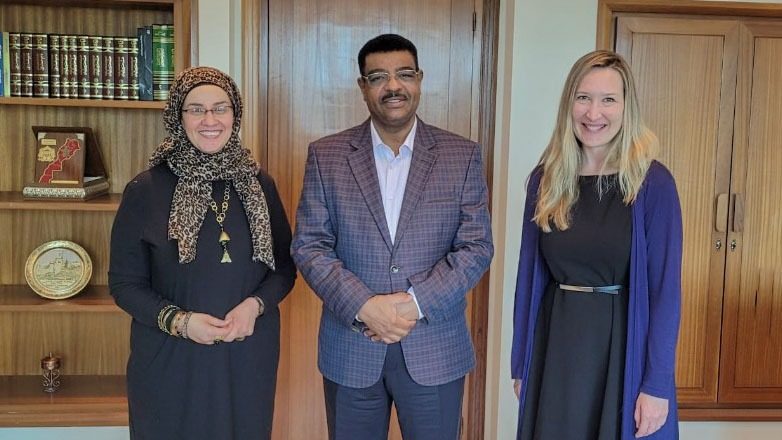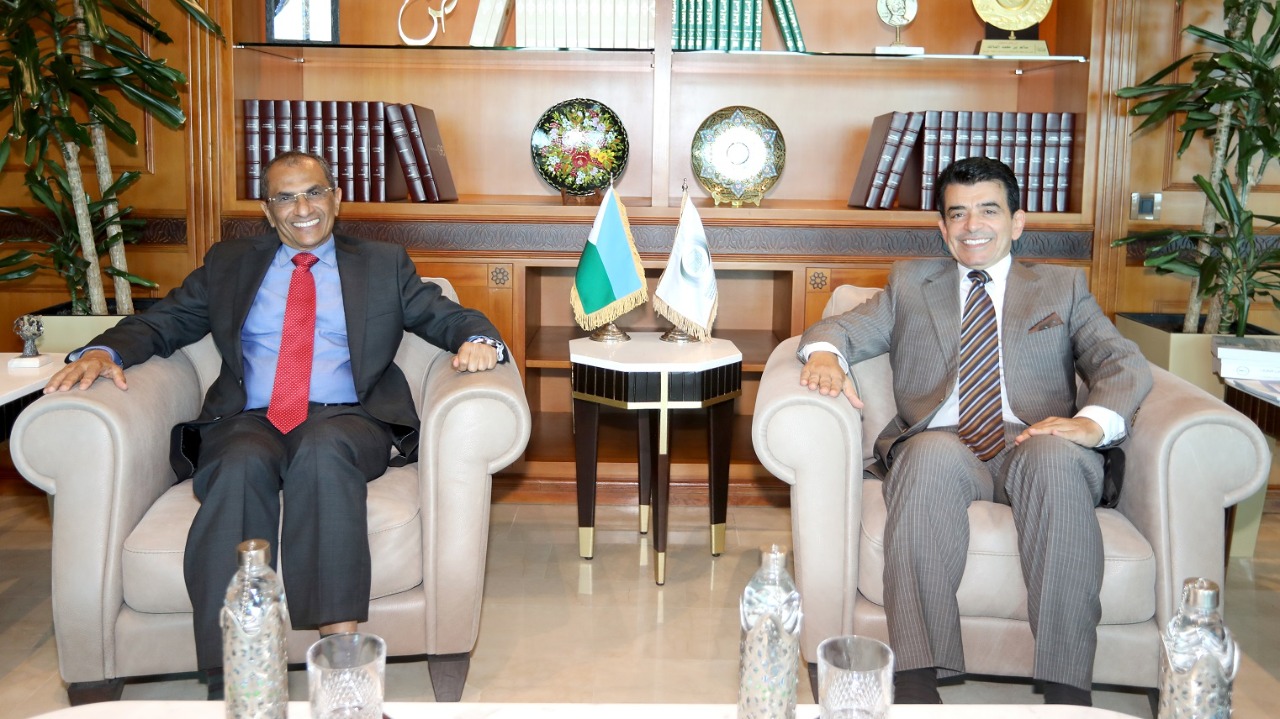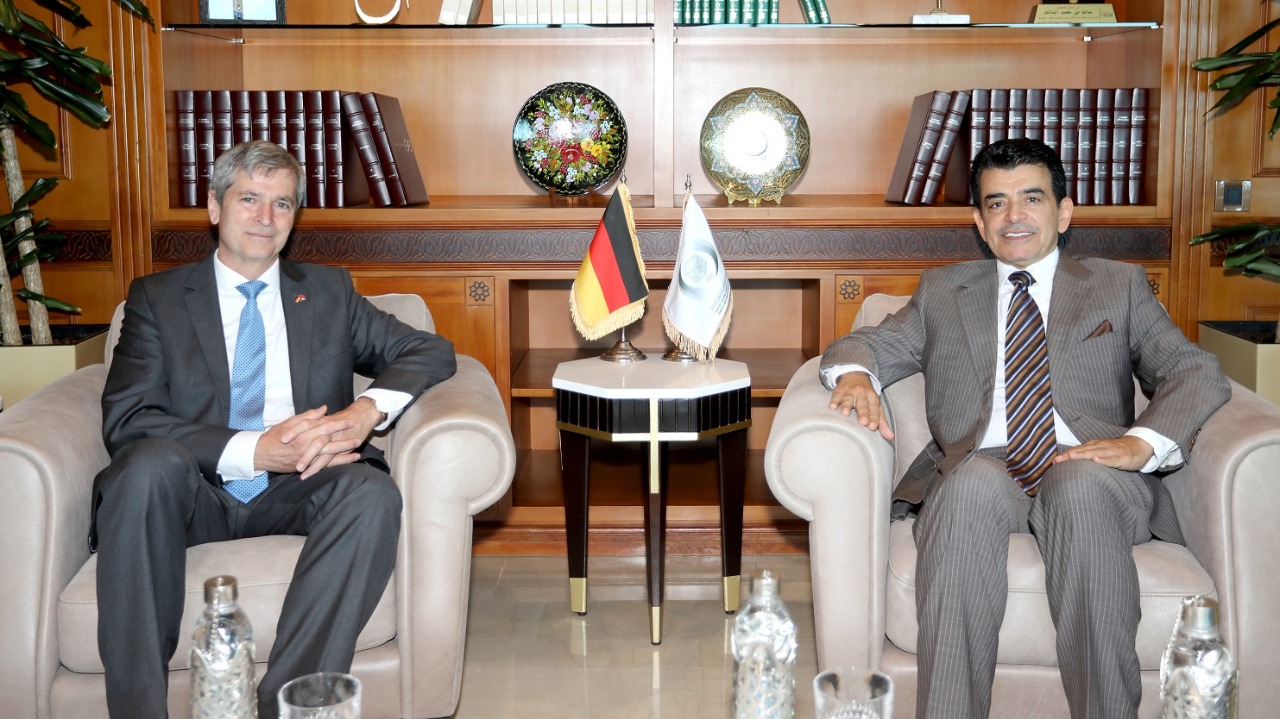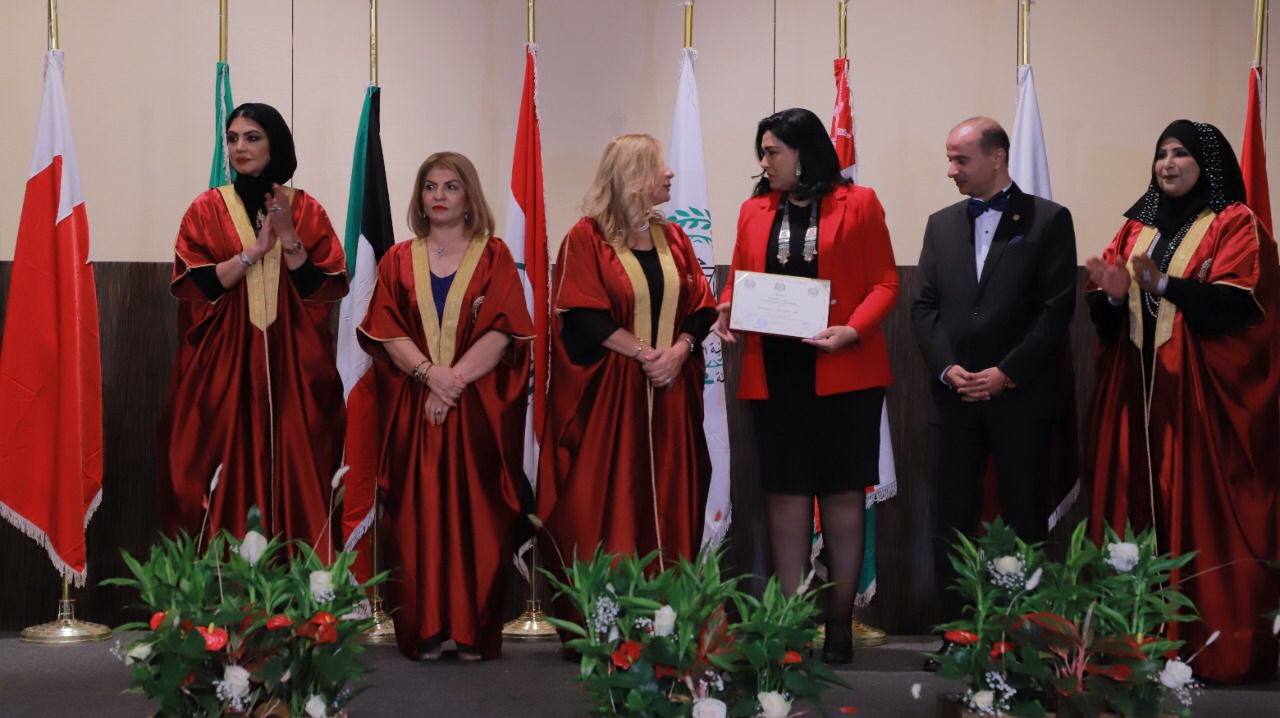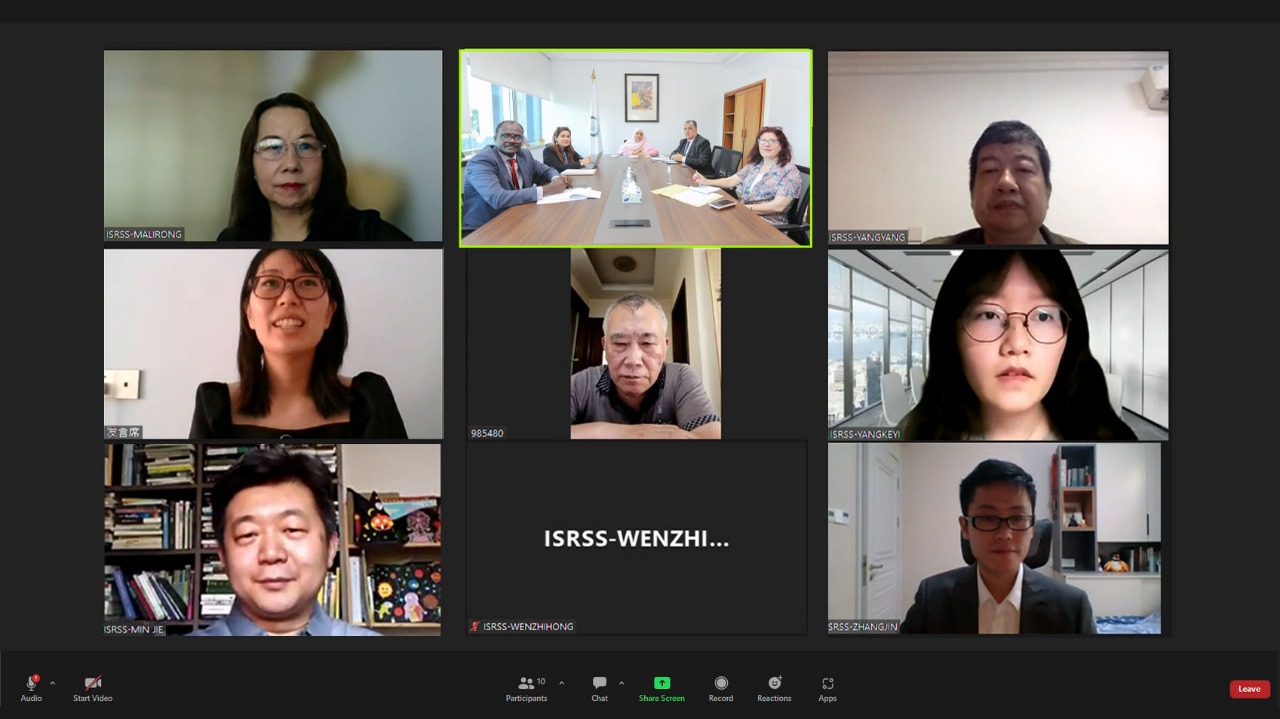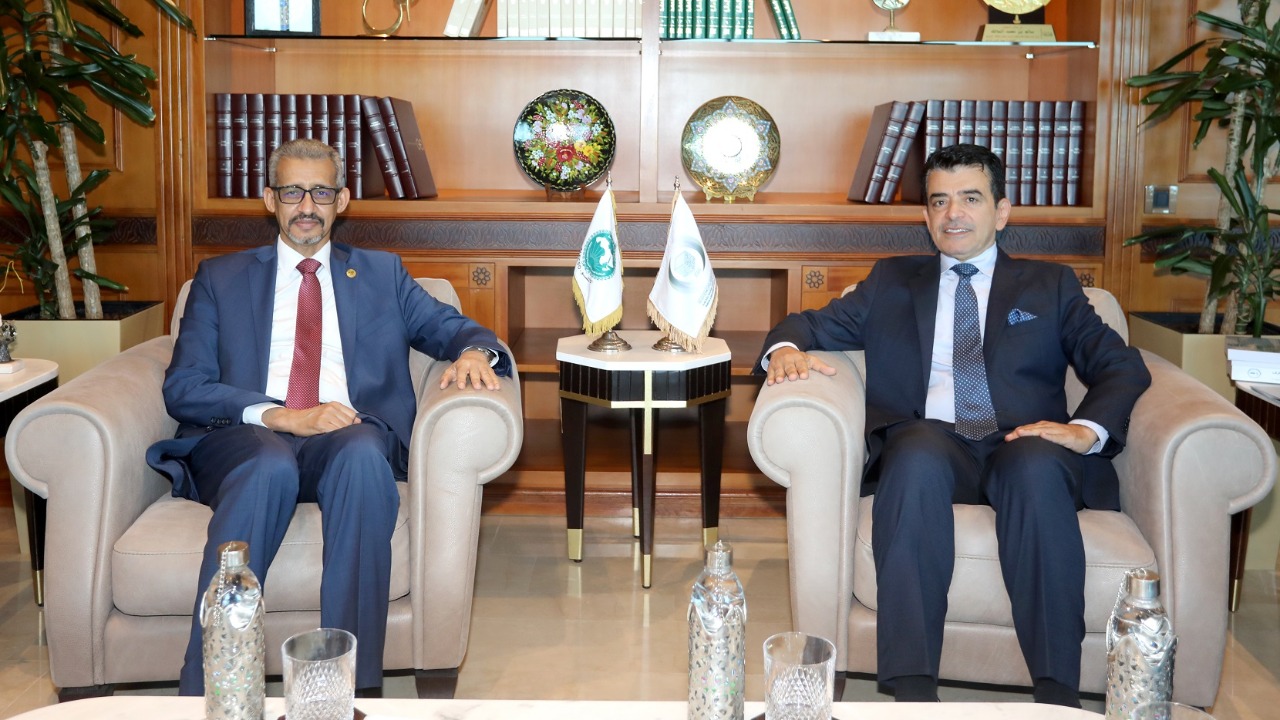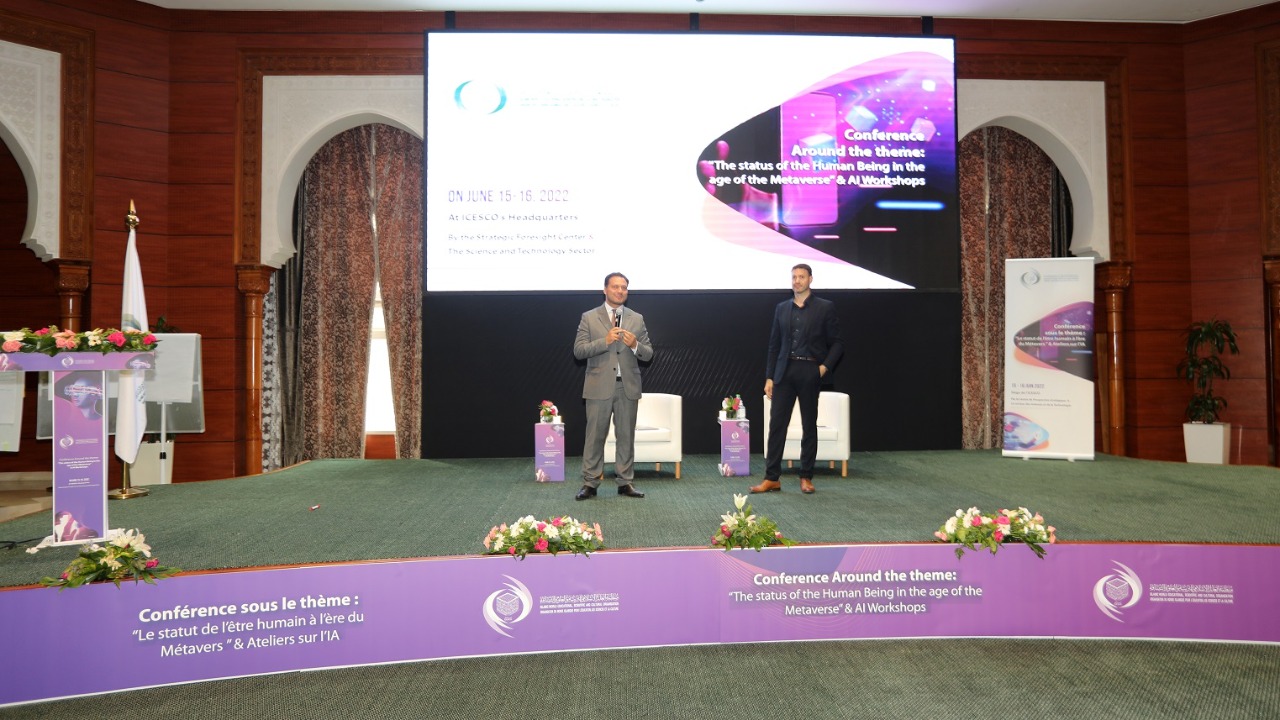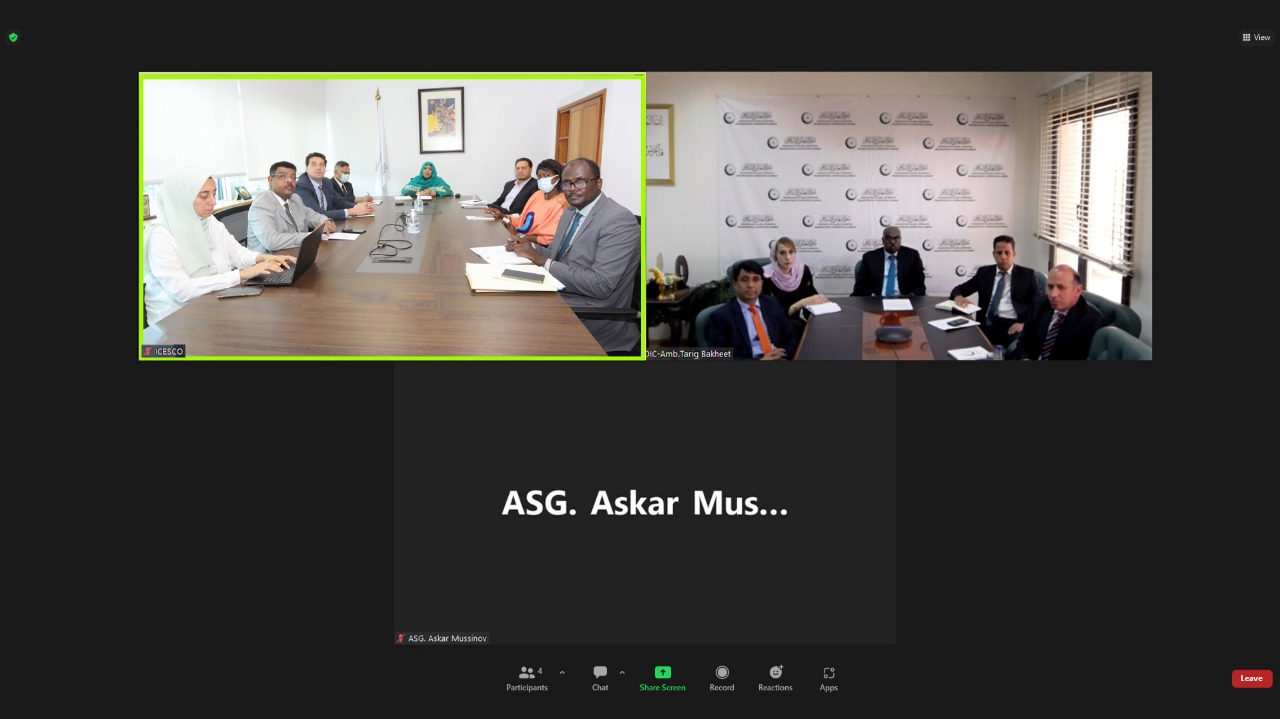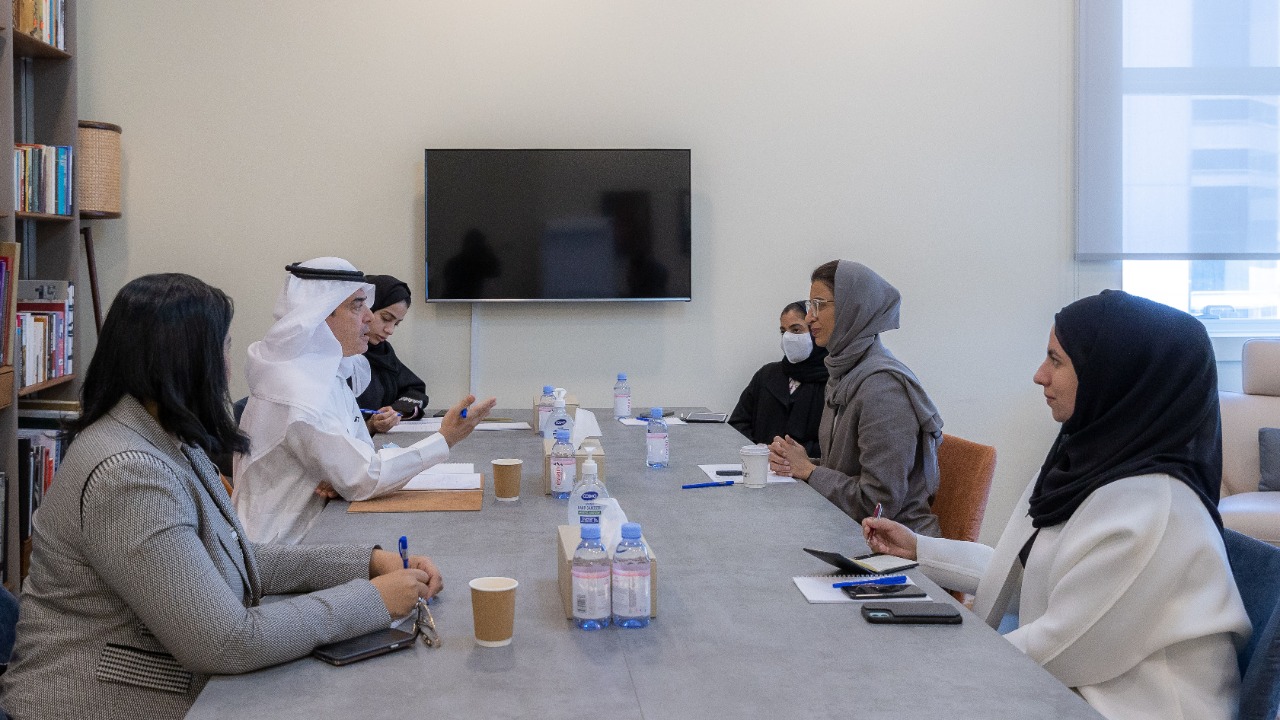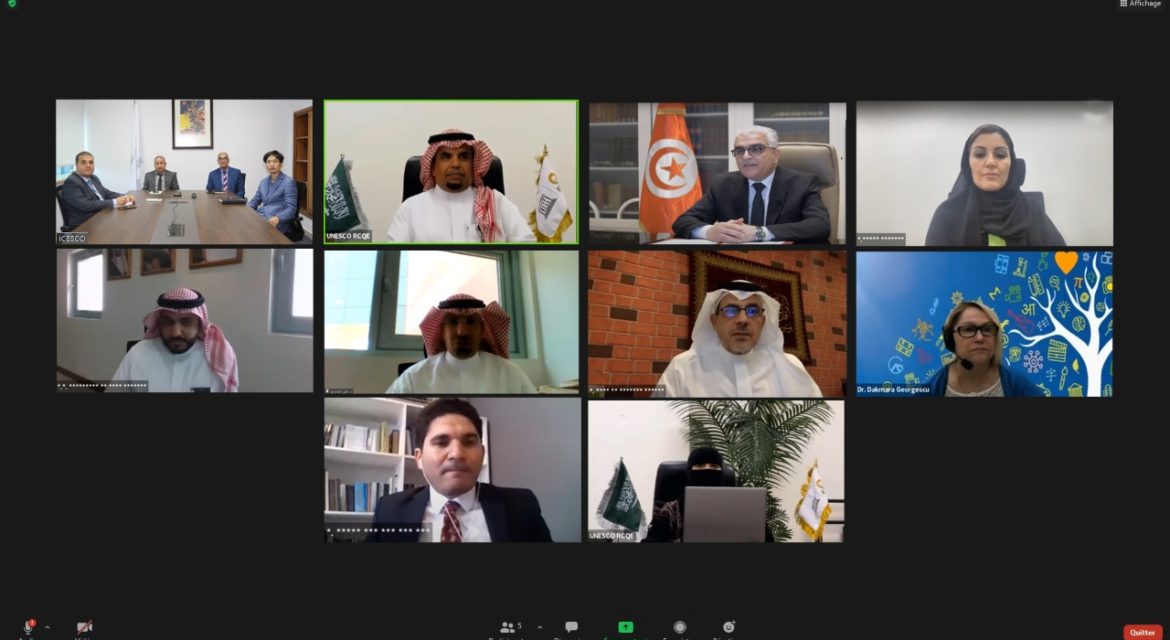Ambassador Khalid Fathalrahman, Head of the Center of Civilizational Dialogue at the Islamic World Education, Science and Culture Organization (ICESCO), received Ms. Dana Podmolikova Project Management Specialist – Youth, at the United Nations Alliance of Civilizations (UNAOC), to explore ways of strengthening cooperation between the two Organizations in youth capacity-building and reinforcing peace values and human coexistence, in order to achieve sustainable development.
During the meeting, which was held on Monday, June 21, 2022, at ICESCO headquarters in Rabat, Ambassador Fathalrahman reviewed the goals and missions of ICESCO Center of Civilizational Dialogue, which reflects ICESCO’s new vision and openness to various civilizations and cultures to promote coexistence and dialogue, highlighting common interests between the two Organizations, namely youth and women capacity-building and their involvement in cultural and civilizational dialogue as well as preparing peacebuilders and peace ambassadors.
For her part, Ms. Dana Podmolikova commended ICESCO’s efforts in building communication and cooperation bridges with various organizations and institutions in the field of civilizational dialogue inside and outside the Islamic world, highlighting the role of sport in promoting dialogue and sustainable development.
Huda Meqeirhi, Expert at the Civilized Dialogue Center, attended the meeting.

